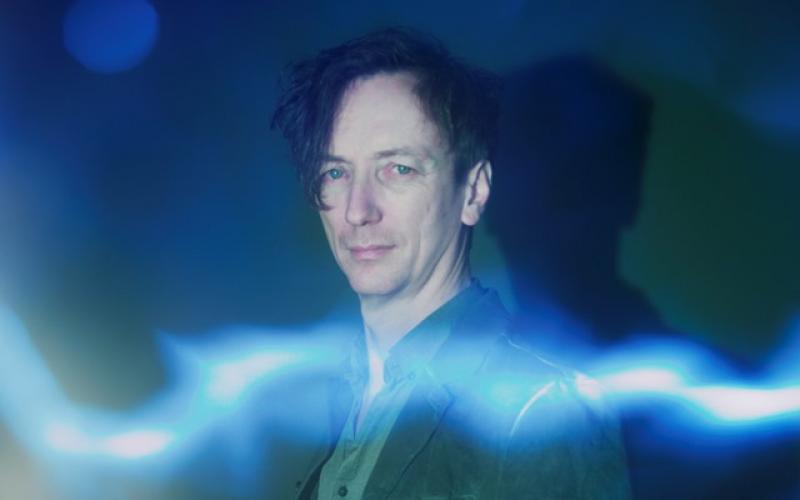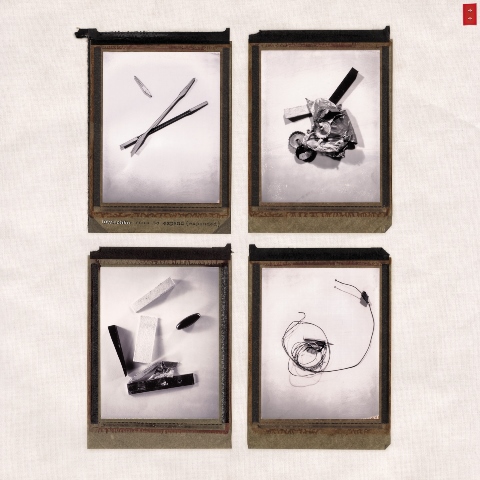Reissue CDs Weekly: Hauschka | reviews, news & interviews
Reissue CDs Weekly: Hauschka
Reissue CDs Weekly: Hauschka
The minimalist pianist-composer’s breakthrough album gets another outing

Turn the clock back to early 2007. It’s not so long ago, but at this point Nils Frahm had issued just one album, Ólafur Arnalds was about to release his first, Jóhann Jóhannsson was one year into what would be two-album relationship with 4AD, and Max Richter had made two albums for 130701, the British offshoot of FatCat Records. Christian Wallumrød was performing solo, but still recording collaboratively.
Hauschka was introduced into this fertile environment by 130701 in February 2007 with Room to Expand, his first widely available album. Volker Bertelmann, as Hauschka, had then to date issued two albums on a German label: Substantial (2004) and the pointedly titled The Prepared Piano (2005). Based in Düsseldorf, the pianist-composer had little audience but times were changing. Unconsciously, Hauschka was in tune with a widespread international artistic upsurge which was occurring without fashionable sanction: it just happened. It also happened thanks to the keen ears of labels like 130701 and the equally well-attuned Erased Tapes.
 Room to Expand was, then, a breakthrough album. It collected 12 tracks and was issued on CD only. 130701 had come to Hauschka after a tip-off from Max Richter. This new reissue of Room to Expand, titled Room to Expand (Expanded), comes as a double album on 16 April (for Record Store Day) and on CD with the addition of six previously unheard tracks from the original album sessions which are in keeping with the album’s overall feel. In 2007 it was issued, as the label’s David Howell puts it in the liner notes, “before any real sense of a coherent scene for such music had developed or even seemed possible”. Consequently, it was largely overlooked.
Room to Expand was, then, a breakthrough album. It collected 12 tracks and was issued on CD only. 130701 had come to Hauschka after a tip-off from Max Richter. This new reissue of Room to Expand, titled Room to Expand (Expanded), comes as a double album on 16 April (for Record Store Day) and on CD with the addition of six previously unheard tracks from the original album sessions which are in keeping with the album’s overall feel. In 2007 it was issued, as the label’s David Howell puts it in the liner notes, “before any real sense of a coherent scene for such music had developed or even seemed possible”. Consequently, it was largely overlooked.
Listening to Room to Expand after having become used to the assured and very precise, yet still fluid current-day Hauschka, the album feels sharp-edged and very aware of its status as a creation working with the prepared piano. Although there is a bubbling serial music-like bass on “Watercolour Milk”, the main keyboard figure is more stentorian than those of his later compositions. It is also more about repeating figures than building and moving on. With “Zahnluecke”, the damping of the piano strings is more severe than it would be later and cuts notes off sharply. Of the newly heard tracks, “Run Run” is the most fascinating as it is more about a naked melody and rhythmic forward motion than anything else on the album.
In essence, Room to Expand suggests formality and a concern with process less evident in Hauschka’s subsequent work. It had arrived at this point with a marked spikiness. However, these inferences are only sustainable with knowledge of what came later. Taken on its own, the album stands as evidence for an already fully-formed vision. Room to Expand may have been overlooked in early 2007, but it now needs to be heard.
Explore topics
Share this article
The future of Arts Journalism
You can stop theartsdesk.com closing!
We urgently need financing to survive. Our fundraising drive has thus far raised £49,000 but we need to reach £100,000 or we will be forced to close. Please contribute here: https://gofund.me/c3f6033d
And if you can forward this information to anyone who might assist, we’d be grateful.

Subscribe to theartsdesk.com
Thank you for continuing to read our work on theartsdesk.com. For unlimited access to every article in its entirety, including our archive of more than 15,000 pieces, we're asking for £5 per month or £40 per year. We feel it's a very good deal, and hope you do too.
To take a subscription now simply click here.
And if you're looking for that extra gift for a friend or family member, why not treat them to a theartsdesk.com gift subscription?
more New music
 Odd times and clunking lines in 'The Life of a Showgirl' for Taylor Swift
A record this weird should be more interesting, surely
Odd times and clunking lines in 'The Life of a Showgirl' for Taylor Swift
A record this weird should be more interesting, surely
 Waylon Jennings' 'Songbird' raises this country great from the grave
The first of a trove of posthumous recordings from the 1970s and early 1980s
Waylon Jennings' 'Songbird' raises this country great from the grave
The first of a trove of posthumous recordings from the 1970s and early 1980s
 Lady Gaga, The Mayhem Ball, O2 review - epic, eye-boggling and full of spirit
One of the year's most anticipated tours lives up to the hype
Lady Gaga, The Mayhem Ball, O2 review - epic, eye-boggling and full of spirit
One of the year's most anticipated tours lives up to the hype
 Slovenian avant-folk outfit Širom’s 'In the Wind of Night, Hard-Fallen Incantations Whisper' opens the door to inner space
Unconventional folk-based music which sounds like nothing else
Slovenian avant-folk outfit Širom’s 'In the Wind of Night, Hard-Fallen Incantations Whisper' opens the door to inner space
Unconventional folk-based music which sounds like nothing else
 'The Art of Loving': Olivia Dean's vulnerable and intimate second album
Neo soul Londoner's new release outgrows her debut
'The Art of Loving': Olivia Dean's vulnerable and intimate second album
Neo soul Londoner's new release outgrows her debut
 Music Reissues Weekly: The Peanut Butter Conspiracy - The Most Up Till Now
Definitive box-set celebration of the Sixties California hippie-pop band
Music Reissues Weekly: The Peanut Butter Conspiracy - The Most Up Till Now
Definitive box-set celebration of the Sixties California hippie-pop band
 Doja Cat's 'Vie' starts well but soon tails off
While it contains a few goodies, much of the US star's latest album lacks oomph
Doja Cat's 'Vie' starts well but soon tails off
While it contains a few goodies, much of the US star's latest album lacks oomph
 Mariah Carey is still 'Here for It All' after an eight-year break
Schmaltz aplenty but also stunning musicianship from the enduring diva
Mariah Carey is still 'Here for It All' after an eight-year break
Schmaltz aplenty but also stunning musicianship from the enduring diva
 Album: Solar Eyes - Live Freaky! Die Freaky!
Psychedelic indie dance music with a twinkle in its eye
Album: Solar Eyes - Live Freaky! Die Freaky!
Psychedelic indie dance music with a twinkle in its eye
 Album: Night Tapes - portals//polarities
Estonian-voiced, London-based electro-popsters' debut album marks them as one to watch for
Album: Night Tapes - portals//polarities
Estonian-voiced, London-based electro-popsters' debut album marks them as one to watch for
 Album: Mulatu Astatke - Mulatu Plays Mulatu
An album full of life, coinciding with a 'farewell tour'
Album: Mulatu Astatke - Mulatu Plays Mulatu
An album full of life, coinciding with a 'farewell tour'

Add comment